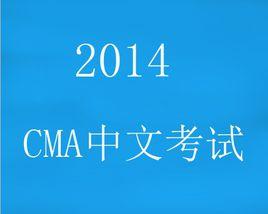The Certified Management Accountant (CMA) designation is highly esteemed in the field of management accounting. To attain this credential, candidates must pass a rigorous examination process that tests their knowledge and skills across various domains. While the programming aspect isn't the central focus of the CMA exam, it's still an essential component, especially in today's datadriven business landscape. Let's delve into what you need to know about the CMA programming exam.

1.
The programming component of the CMA exam evaluates candidates' ability to use programming languages to manipulate data, perform analyses, and generate insights.
In modern management accounting, proficiency in programming languages such as Python or R is increasingly valuable for tasks like financial modeling, data analysis, and automation of repetitive tasks.
2.
The programming portion typically consists of practical coding tasks rather than theoretical questions.
Candidates may be required to write code to solve specific accounting or financial problems, analyze datasets, or create automated reports.
3.
Understanding of basic programming concepts such as variables, loops, conditional statements, functions, and data structures.
Proficiency in data manipulation and analysis using libraries or packages commonly used in accounting and finance, such as Pandas for Python or dplyr for R.
Ability to interpret and visualize financial data effectively through graphs, charts, and summary statistics.
4.
5.
While the CMA exam may not specify a particular programming language, candidates often find Python or R to be the most suitable choices due to their versatility and extensive libraries for data analysis.
Selecting the right language depends on personal preference, familiarity, and the specific requirements of the exam.
6.
Allocate sufficient time to prepare for the programming section alongside other exam components.
Practice coding under time constraints to simulate exam conditions and improve efficiency.
7.
Read each question carefully and ensure a clear understanding of the problem before writing code.
Plan your approach and algorithm before starting to code to avoid errors and optimize efficiency.
Test your code thoroughly to identify and correct any bugs or logical errors before submission.
Allocate time for reviewing and refining your solutions if time permits.
In conclusion, while the programming component of the CMA exam may seem daunting, adequate preparation and practice can significantly enhance your chances of success. By mastering programming fundamentals, practicing coding in the context of accounting and finance, and utilizing resources effectively, you can approach the exam with confidence. Remember to stay calm, focused, and methodical during the exam, and don't hesitate to seek assistance or clarification if needed. With dedication and perseverance, you can conquer the CMA programming exam and take a significant step towards advancing your career in management accounting.
版权声明:本文为 “联成科技技术有限公司” 原创文章,转载请附上原文出处链接及本声明;

